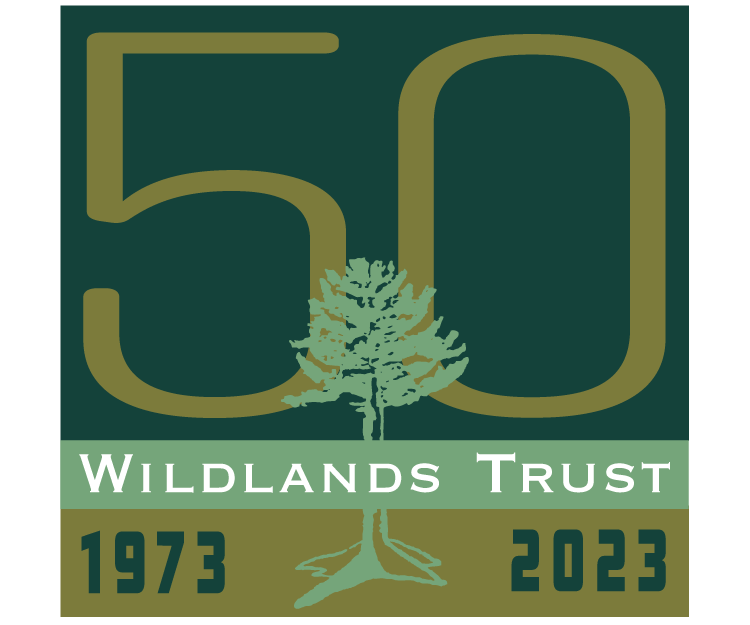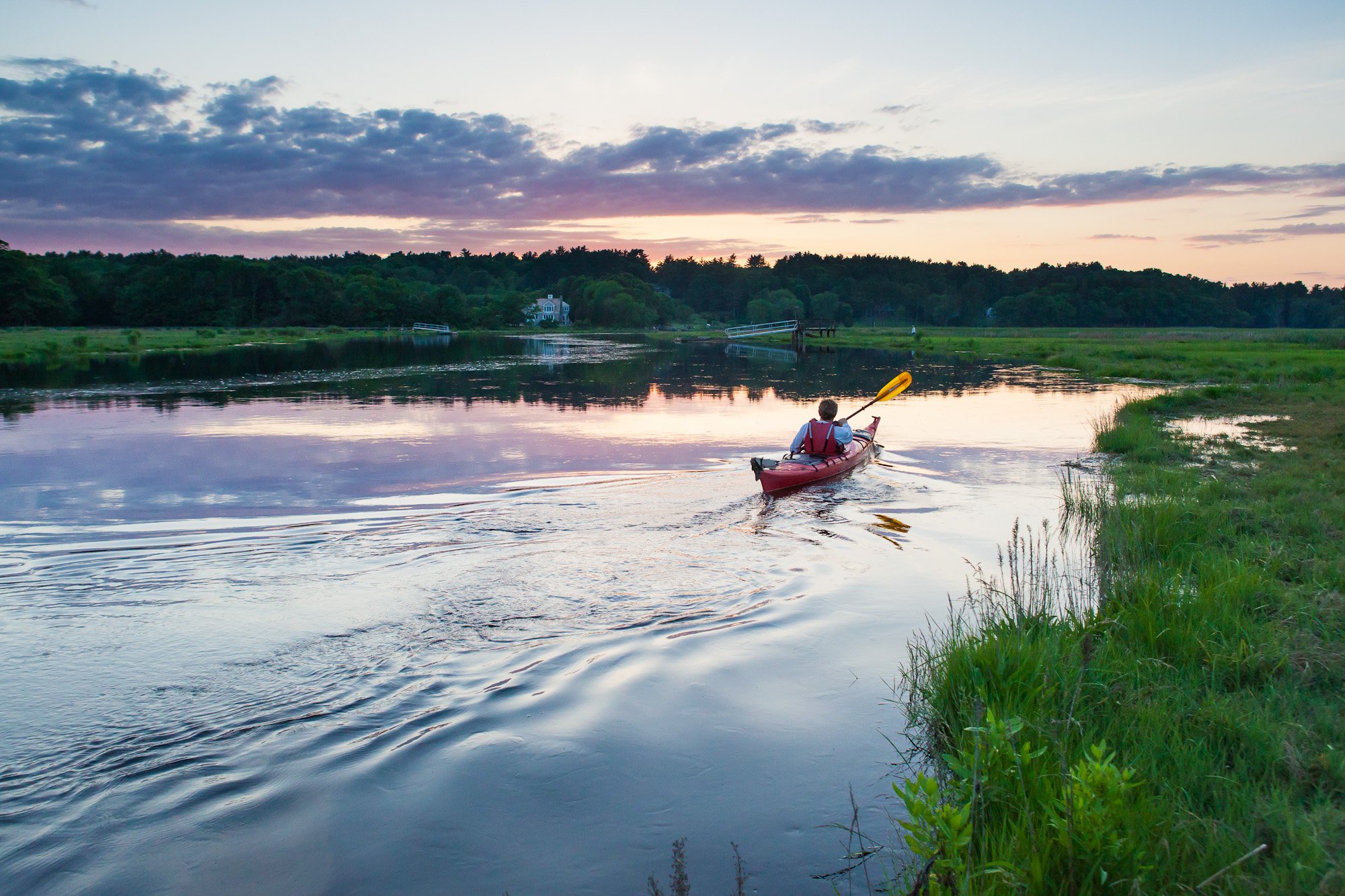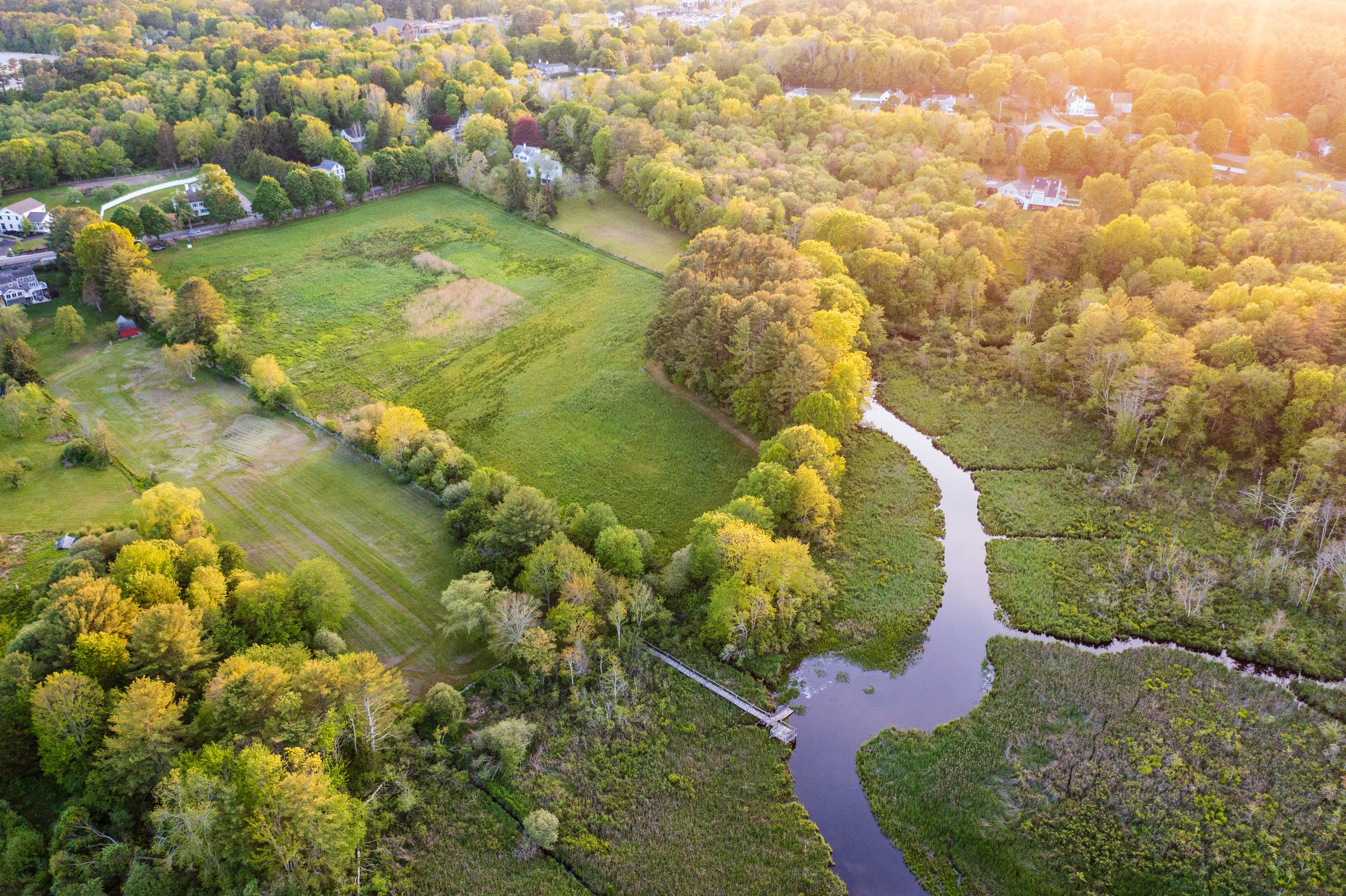Conserve Your Land
Each situation requires a different strategy. Our expert Land Protection staff can help you to evaluate your options and prepare a plan to protect your property’s conservation values and meet your needs and wishes. You should also consult a tax attorney and/or accountant before making a decision.
-
Donating your land to Wildlands Trust ensures the permanent protection of your land while relieving you of all the responsibilities of ownership, including management and liability. Conveying land to Wildlands Trust also ends the burden of your property taxes and may provide you with income tax and estate tax benefits. Donating land is the most straightforward method of land protection and offers the greatest direct tax benefit to the donor.
You may also donate non-conservation property that Wildlands may trade for other land or sell to generate funds for conservation use. The donor is eligible for the same tax benefits as for a gift of conservation land.
-
A life estate or “gift of remainder interest” lets you donate your land to Wildlands Trust while allowing you the right to continue using the property during your lifetime or for some specified period of time. You may be entitled to a tax deduction in the year of the donation, but the tax advantage is less than for an outright donation.
-
Donating land through a bequest entitles you to own, manage, and enjoy your land during your lifetime while giving you the peace of mind that it will be cared for in the future. The donor remains responsible for maintenance and real estate taxes on the property but removing land from an estate can significantly reduce inheritance taxes. A bequest is relatively simple to prepare and can be amended should your circumstances or intentions change. It is advisable to discuss a land donation with Wildlands Trust before its inclusion in a will.
-
While Wildlands has limited resources available for purchasing land, we sometimes raise funds for outstanding projects. In common with most conservation organizations, Wildlands is usually unable to pay fair market value, but selling at full market value eliminates the possibility of making use of charitable deductions.
A Bargain Sale is part sale and part donation, entitling the seller/donor to an income tax deduction based on the difference between the sale price and the fair market value as determined by a qualified appraisal. If the property has appreciated, there may be additional savings on capital gains taxes.
In an Installment Sale, the seller agrees with Wildlands to receive payment over a period of years. This allows the seller to spread out tax deductions and gives the organization longer to raise the purchase price.
Are you a Conservation Buyer? If you are interested in purchasing land with ecologically significant features and protecting it with a conservation restriction, Wildlands Trust may be able to help.
-
By donating a conservation restriction to Wildlands Trust you can permanently protect your land and may receive significant federal tax benefits. Conservation restrictions limit specified future uses of the land, such as development, but allow you to maintain ownership, management, and the right to sell your land or pass it on to heirs. Throughout the United States, conservation agreements are used to protect over a million acres every year!
Already conserved your land? Download important documents here.
-
Placing a term deed restriction on your property may protect some of its features and control or guide its future use. However, it is the least-preferred option in the land protection "toolbox", as it does not run with a property's title in perpetuity and can be rendered unenforceable under certain conditions. Under Massachusetts Law, a deed restriction may run with a property for no more than thirty years, and the holder of the restriction must re-record it prior to its expiration to extend the restriction. No income or estate tax benefits are associated with a deed restriction because of its temporary nature.
-
Beginning in 2011, landowners with eligible land may qualify for up to $75,000 in refundable tax credits from Massachusetts, in addition to federal deductions cited above, for land gifts, conservation restrictions and charitable sales.
For more information on any of the above solutions, contact:
Scott MacFaden
Director of Land Protection
smacfaden@wildlandstrust.org
774-343-5121 x107










